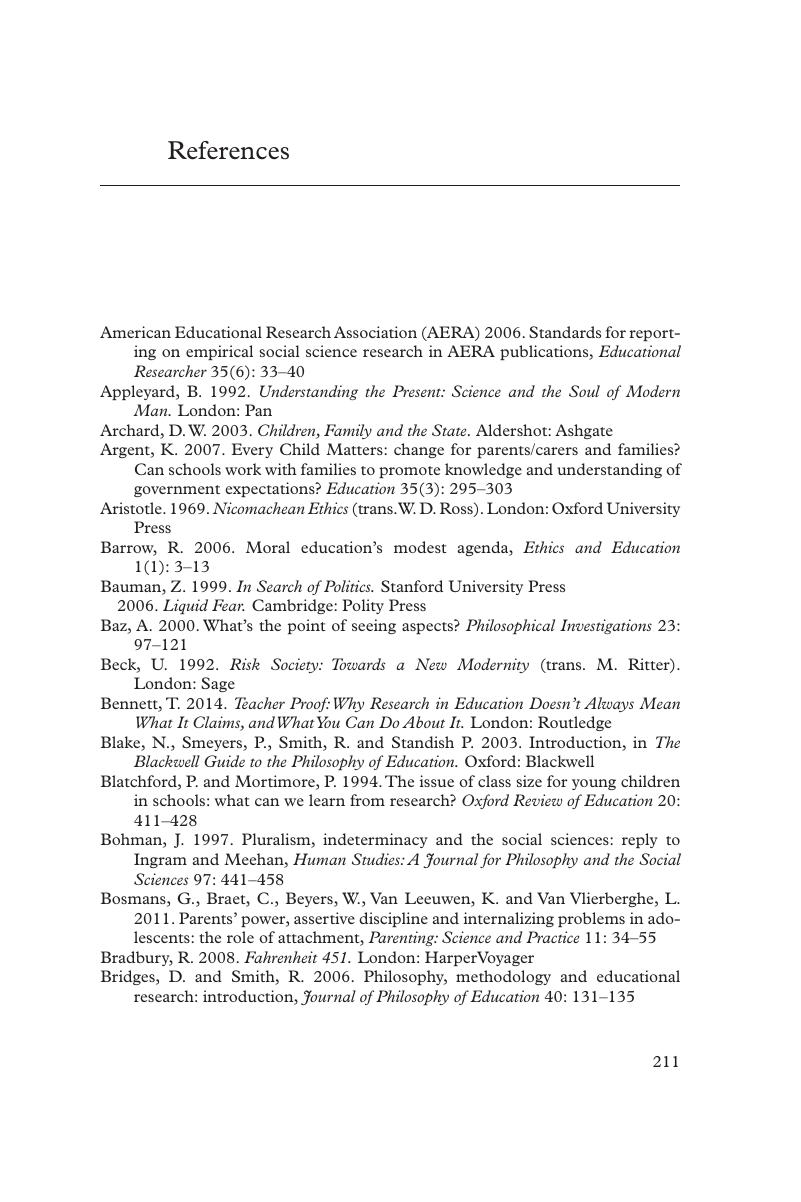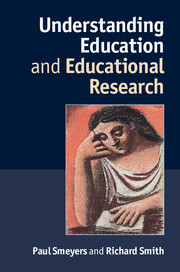Book contents
- Frontmatter
- Contents
- Acknowledgements
- Introduction
- 1 Education and its research
- 2 The nature of social science
- 3 The idea of method
- 4 The nature of philosophy
- 5 The art of research
- 6 Language, truth and meaning
- 7 On the dominant nature of educational research and its shortcomings
- 8 Research, policy and practical reasoning
- 9 The limits of measurement
- 10 Parenting and government intervention in the family (case study I)
- 11 Researching happiness and well-being (case study II)
- 12 Philosophy and research
- Notes
- References
- Index
- References
References
Published online by Cambridge University Press: 05 November 2014
- Frontmatter
- Contents
- Acknowledgements
- Introduction
- 1 Education and its research
- 2 The nature of social science
- 3 The idea of method
- 4 The nature of philosophy
- 5 The art of research
- 6 Language, truth and meaning
- 7 On the dominant nature of educational research and its shortcomings
- 8 Research, policy and practical reasoning
- 9 The limits of measurement
- 10 Parenting and government intervention in the family (case study I)
- 11 Researching happiness and well-being (case study II)
- 12 Philosophy and research
- Notes
- References
- Index
- References
Summary

- Type
- Chapter
- Information
- Understanding Education and Educational Research , pp. 211 - 218Publisher: Cambridge University PressPrint publication year: 2014



